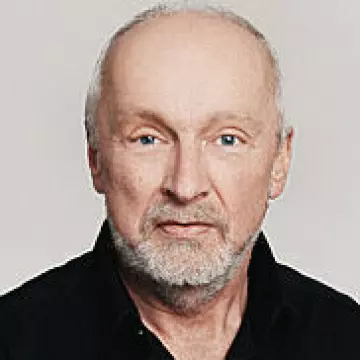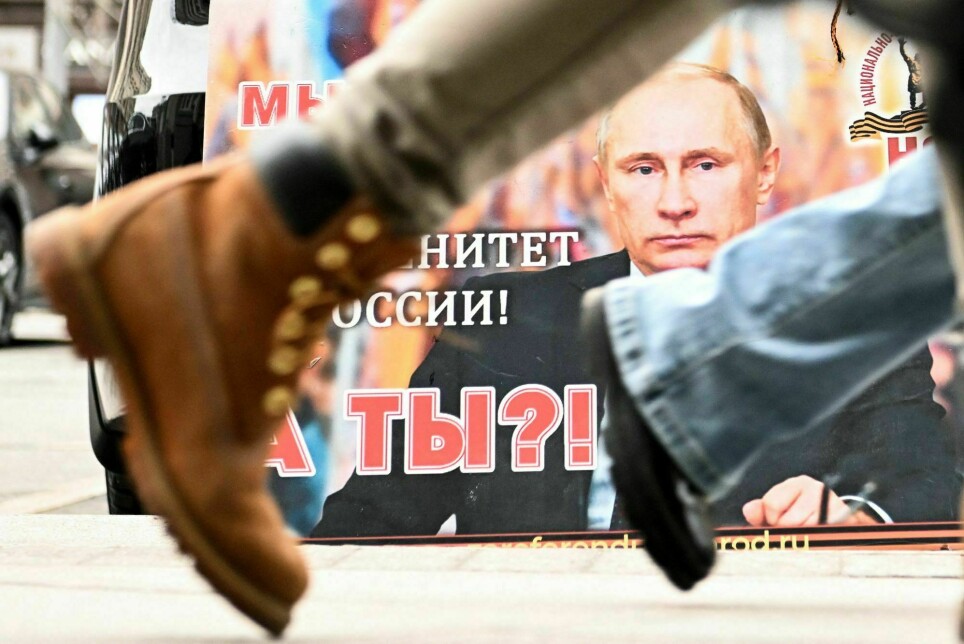
Russia has become a classic dictatorship
Vladimir Putin has ended up in the same situation as many dictators before him. He is surrounded by fewer and fewer advisers, those that are left tell Putin what they think he wants to hear, believes Norwegian researcher.
“Russia has become a classic dictatorship,” Tore Wig tells forskning.no.
Wig is a professor of political science at the University of Oslo, and specialises in the politics of dictatorships.
“Putin’s circle of advisers has continued to decrease and is now probably very small,” speculates Wig.
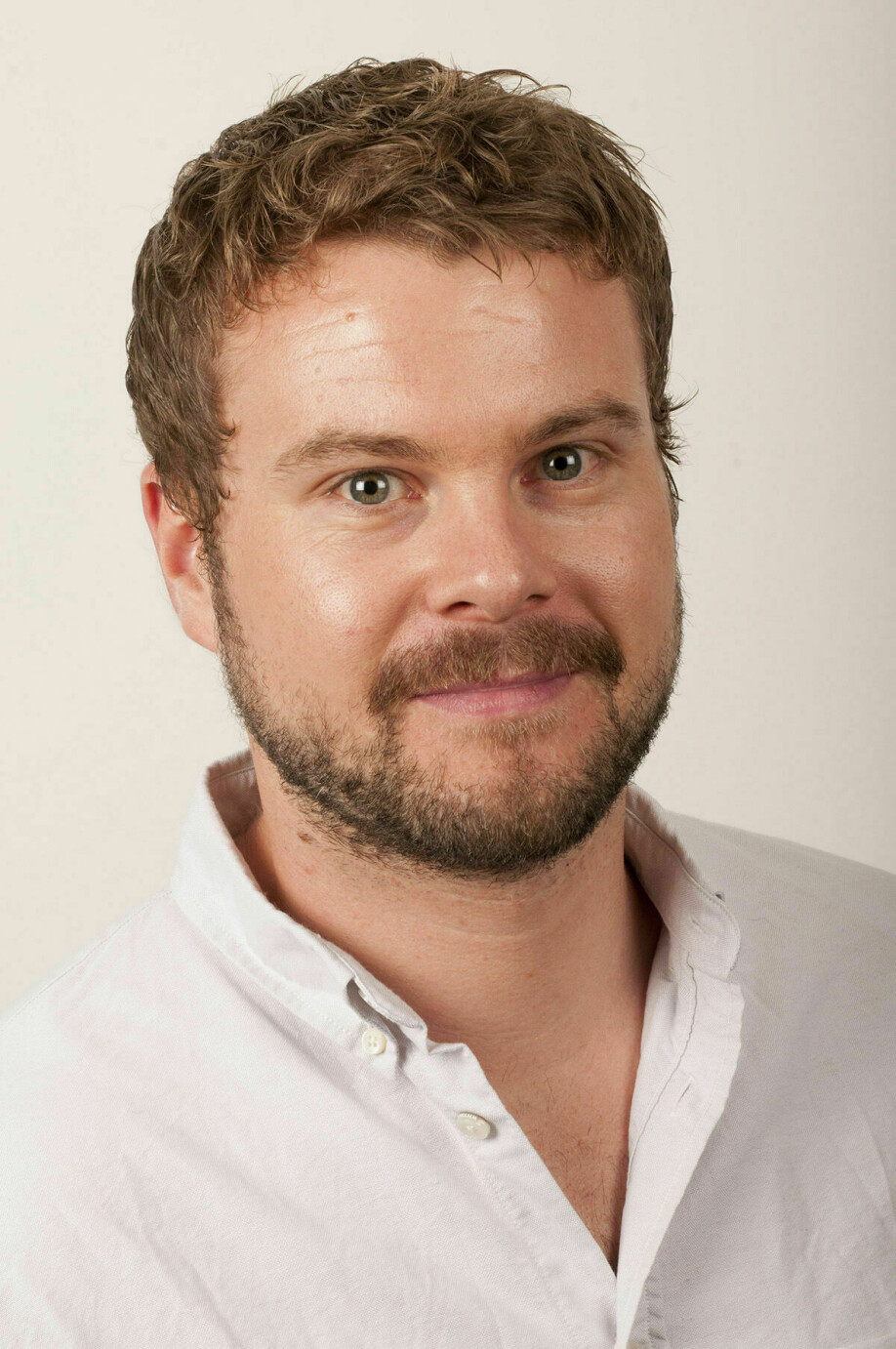
Dictators often make mistakes
According to Wig, in recent years Putin has evolved in line with what we have seen in many other dictatorships throughout history.
“Putin surrounds himself with people who tell him what they think he wants to hear. Few or none dare to contradict him,” says Wig, pointing out that dictators like this often make mistakes.
“An invasion of the neighbouring country Ukraine is absolute madness. But if you’re sitting on bad intel from your subordinates, then it’s easier to make stupid mistakes.”
However, as Wig points out, it is also clear that Putin’s decisions are marked by his ideological views on Russia’s role in relation to neighbouring countries.
Putin is becoming more isolated
Last Monday we were offered a rare insight into how Putin is able to keep his control.
During a livestreamed meeting with Russia’s Security Council, Putin could be seen sitting behind a large desk. The rest of the security council sat at the opposite end of the huge hall.
From his position, Putin pressures the stuttering intelligence chief Sergey Naryshkin to admit that Russia recognises the breakaway republics of Luhansk and Donetsk. The meeting can be viewed on NRK in its entirety.
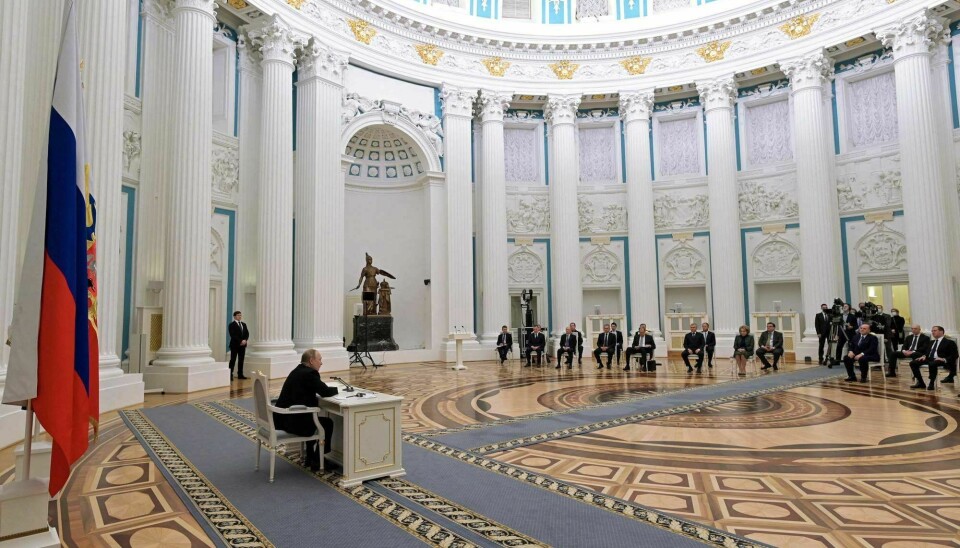
Wants to hinder democracy
Tore Wig is doubtful that Russia’s fear for its’s own security and NATO is the reason behind the attack on the neighbouring country.
“The invasion is likely an attempt to prevent Ukraine from moving even further in a democratic direction,” says Wig.
He believes Putin’s fear is that Ukraine will become a democratic and Western-oriented country, as we have seen happen in countries such as Lithuania, Estonia and several others.
“This fear stems from the fact that Putin knows that such a development in Ukraine could pose a serious threat to his own regime in Russia,” notes Wig.
The researcher at the University of Oslo also sees a clear connection between what is happening now and the former Soviet Union. At that time, the dictatorship also had a lot of control over developments in neighbouring countries.
An old-fashioned war
Countries that attack other countries in order to steal their territories has for decades been seen as a thing of the past. The vast majority of wars and conflicts in recent times have been civil wars or uprisings within the borders of individual countries.
The invasion of Ukraine is thus a clear anomaly in the trend in international politics, where we have moved in an increasingly peaceful direction.
“Democracies rarely go to war against each other. Wars between countries typically involve either a dictatorship attacking a democracy, or two dictatorships at war with each other,” says Wig.
After the Cold War, democracy has grown and developed almost all over the world. According to Wig, although there have been setbacks, this is still the main trend.
Few dare to oppose Putin
Scott Gates is also a professor of political science at the University of Oslo.
Gates, like Tore Wig, is concerned that the flow of information Putin receives from his advisers may be quite limited.
“There are now probably many ‘yes’ people around Putin,” Gates says. “People who tell him what they think he wants to hear.”
At the same time, Gates believes that through all of Putin’s time in power we have seen that he wants to return to a ‘Greater Russia’ or a kind of Soviet Union, with control over far larger areas than Russia has today.
“What he is doing now has been on his mind for a long time,” Gates thinks.
“With all the ‘yes’ people Putin now has gathered around himself, he will probably receive mostly positive feedback on his ideas. There are probably few people left in Putin’s circle that dare speak out against him.”
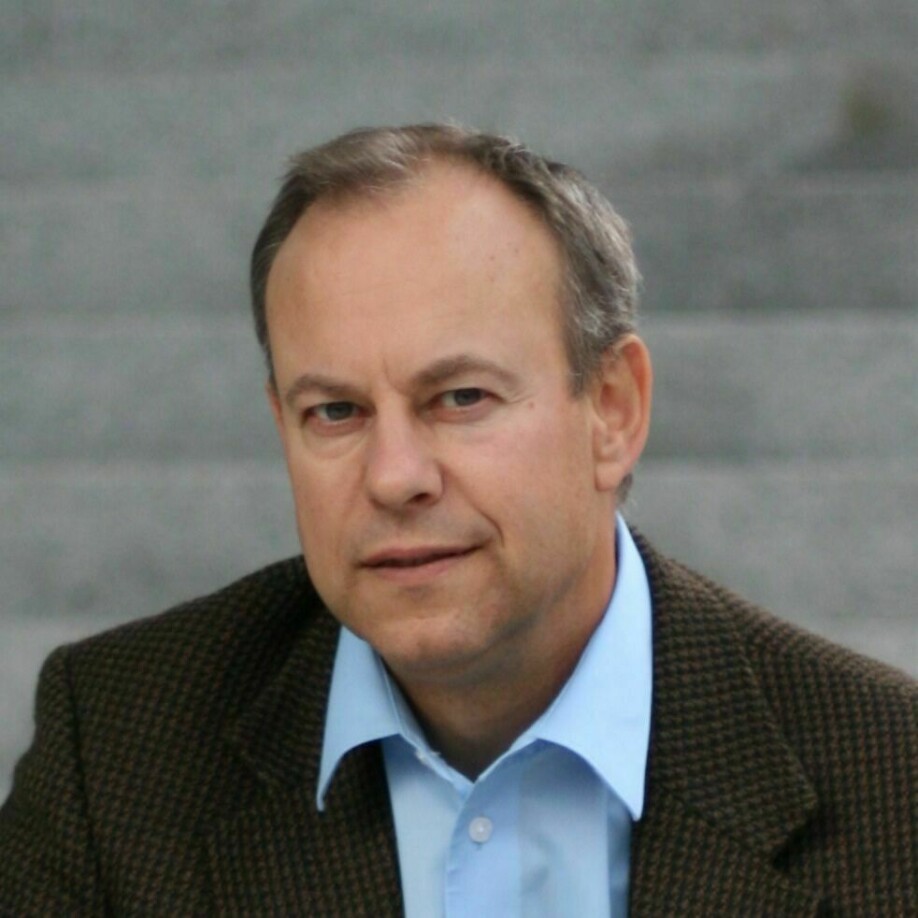
Also important for Belarus
“If we had spoken a week ago, I still would not have thought that Putin would administer a full invasion of Ukraine,” Gates tells forskning.no.
“Now I cannot rule anything out.”
The political science professor at the University of Oslo believes that Putin’s goal with the invasion may be to install an obedient regime in the government offices in the Ukrainian capital Kyiv.
Gates believes that this situation also involves Belarus and the problems the dictator Alexander Lukashenko had with keeping control there.
“It is obvious that Putin now has gained great control over Belarus. He can get the same over Ukraine,” says Gates.
Putin’s security apparatus
The invasion of Ukraine also encompasses Russian domestic policy, the researcher believes.
“Putin has done a lot to distance himself from the dependence on the long powerful Russian oligarchs. To achieve this, he has secured more and more control over the Russian security apparatus. This security apparatus has once again gained more and more control over Russia and Russian politics,” Gates notes.
“A war gives Putin even more control.”
“Simultaneously, Putin can turn people’s focus away from Russia’s internal problems and how this affects ordinary people’s economy,” Gates believes.
No easy victory
“Ukraine is unlikely to be an easy victory for him,” Gates argues.
“If this lasts for many weeks, Putin may have to use his security apparatus to gain control of his own Russian population. Such a reaction would likely be unpopular.”
Scott Gates believes that Putin's attempt to stamp the democratically elected government in Ukraine as Nazis is clearly intended for Russia's own people. He plays on their memories of the Nazi attacks and brutality during World War II.
Translated by Alette Gjellesvik.
Read the Norwegian version of this article on forskning.no







